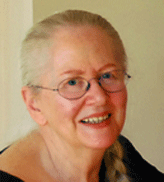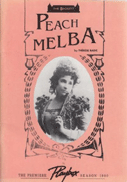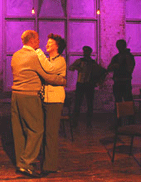Therese Radic – October 17 2021
 Thérèse is a musicologist, biographer and author and editor of ten books, 16 plays and numerous articles, monographs, chapters and reviews on aspects of Australian music history. She has been a lecturer, broadcaster, course designer and music consultant for museums, galleries, celebratory events, film, television and the stage and sat on many committees. Thérèse holds a Bachelor of Music, Master of Music and PhD from the University of Melbourne where she is currently an Associate Professor and Honorary Principal Research Fellow in the Faculty of the VCA and Music. She has been an Australian Research Council Fellow at Monash University and a member of the Australia Council. Her plays include Some of My Best Friends are Women (with L Radic); A Whip Round for Percy Grainger; Cinders; Madame Mao; A Committed Adultery; Talking Back; The Emperor Regrets; Long March to New Gold Mountain; Book Talk; Shanghai Sisters and George and the Dragon.
Thérèse is a musicologist, biographer and author and editor of ten books, 16 plays and numerous articles, monographs, chapters and reviews on aspects of Australian music history. She has been a lecturer, broadcaster, course designer and music consultant for museums, galleries, celebratory events, film, television and the stage and sat on many committees. Thérèse holds a Bachelor of Music, Master of Music and PhD from the University of Melbourne where she is currently an Associate Professor and Honorary Principal Research Fellow in the Faculty of the VCA and Music. She has been an Australian Research Council Fellow at Monash University and a member of the Australia Council. Her plays include Some of My Best Friends are Women (with L Radic); A Whip Round for Percy Grainger; Cinders; Madame Mao; A Committed Adultery; Talking Back; The Emperor Regrets; Long March to New Gold Mountain; Book Talk; Shanghai Sisters and George and the Dragon.
 Peach Melba
Peach Melba
Currency Press, 1990; ISBN 9780868192628
90 minutes; 2 female, 2 male (1 male plays piano)
Young adult – adult
This play explores the public and private lives of the inimitable Dame Nellie Melba. At her final concert, the great diva is haunted by critical moments from her past. The play uses music from Melba’s repertoire to bring these moments alive as two Melba’s – the confident, determined careerist and the private doubting woman – confront each other recalling highlights from a life full of triumph, scandal and pain. Thérèse has also produced Marvellous Melba, an audio-visual play for voices).
 Café Scheherazade
Café Scheherazade
Australian Script Centre, 2011
90 minutes; 1 female 5 male (plus 2 musicians)
Young adult – adult
Martin, a journalist, has fallen under the spell of the Café Scheherazade and its Jewish refugee clientele. He is writing a book about them and is anxious to finish, but they others do not fully trust him – the outsider – and he senses that there is a great deal more behind their light-hearted quarrelling that he can’t get at. The characters tell fragments of their stories, the musicians weave in and out of the tapestry, the timelines of their lives begin pre-war and wind their way through the arctic, the gulags, the escapes, and the epic journeys that led them to this café on the other side of the world. Martin’s book is finally published, but under the celebration he is shot through with doubt: Who will listen? Did they tell the truth? Do their stories matter? Is death their end?
